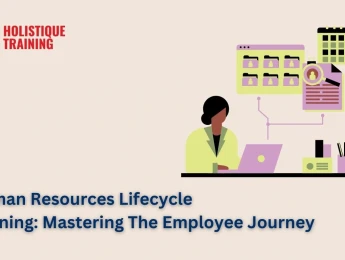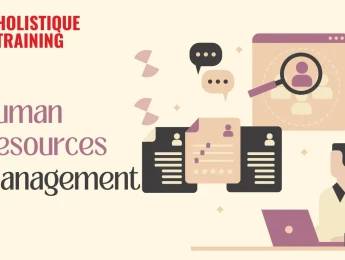One of the current buzzwords in business is HR Transformation, but if you do not understand the concept, it is hard to deliver this within your organisation. The idea is to ensure that you are driving business and getting results while improving the functionality of HR. It also has to look at the bigger picture and understand the links between corporate goals, external and internal customer satisfaction and how the business achieves productivity and quality. As HR professionals, delegates need to be able to work at a strategic level within the company to add value and become partners.
You need to develop knowledge and skills to ensure that your contribution has transitioned from a service provider to a more valuable strategic partner. This is important for meeting stakeholder expectations and the general conditions of the business. Whether you already work in HR or want to upskill to gain career progression, this is the perfect course for you.
Delegates will learn various skills that align with today’s HR best practices and gain valuable experience using tools such as PEST and SWOT analysis. It also explores the five forces analysis and balanced scorecards, all of which you should know of.
Upon completion of this course, participants will be able to:
- Demonstrate an understanding of the need for a business strategy
- Create a plan for creating HR objectives by transforming strategic requirements
- Explain the role of HT in the implementation of strategy development
- Explain strategy formation methodologies and best practices
- Explain PEST, SWOT, balanced scorecards and five forces analysis
- Achieve business objectives by creating a strategic action plan for HR
- Confidently create an SHRM business plan model
- Use business model canvas to formulate a business plan model
This course is intended for:
- HR Directors, Managers, and Specialists
- HR Practitioners and Business Partners
- Planners, Strategic Planners
- Training, Learning & Development Professionals
- Talent Management Staff
- HR Business Partners
- Change Agents
- All HR Staff
- People moving into HR from other roles
- Anyone who needs to understand HR strategy
Teaching takes place in a variety of settings, including face-to-face classroom teaching. It will ensure that participants can expand their knowledge of the subject and increase their skills. The course is delivered via various methods by a specialist tutor. This will include PowerPoint presentations, reviewing articles and other relevant materials, group or individual exercises and discussions. There may be some independent work set, and the course will require submitting articles to demonstrate understanding and an end-of-course test. Note-taking is encouraged, and you are welcome to use electronic devices to do this.
The course manual will form part of the learning but give you references for the future. You are encouraged to ask questions and, if needed, spend time one-on-one with your tutor to go over any issues. You will network with peers in similar roles during your time in the classroom.
Day 5 of each course is reserved for a Q&A session, which may occur off-site. For 10-day courses, this also applies to day 10
Section 1: What is Strategic HR Practice?
- HR strategy foundations
- The key points of organisational strategy
- Why is strategic HRM development important
- What are the new models of HR
- Understanding centres of expertise, shared services and business partners
- HR strategy - the steps needed to formulate
Section 2: Building Business Models by Translating Strategy
- Strategic objective formation
- Creating an HR Mission Statement
- Metrics with SHRM
- What is a Business Model, and how do you create one?
- SHRM using Business model canvas
Section 3: SHRM: Practical Strategic Analysis Tools
- Tools for strategic analysis
- PEST and SWOT analysis
- Understanding 5-Forces analysis
- Balanced Scorecards: an overview
- The Human Resources model for accounting
Section 4: Trends Impacting Organisations
- Employment Trends Impacting HR
- World business trends impacting on HR
- HR and Leadership
- Creating cohesive team working
- Issues with retention
- HR: What is the future?
Section 5: HR Function: Evaluation and Best Practice
- Trend analysis and predictive planning software
- Absenteeism: Practical examples of measurement
- Added Value: The HR Contribution
- HR function evaluation
- Planning for personal action
Upon successful completion of this training course, delegates will be awarded a Holistique Training Certificate of Completion. For those who attend and complete the online training course, a Holistique Training e-Certificate will be provided.
Holistique Training Certificates are accredited by the British Assessment Council (BAC) and The CPD Certification Service (CPD), and are certified under ISO 9001, ISO 21001, and ISO 29993 standards.
CPD credits for this course are granted by our Certificates and will be reflected on the Holistique Training Certificate of Completion. In accordance with the standards of The CPD Certification Service, one CPD credit is awarded per hour of course attendance. A maximum of 50 CPD credits can be claimed for any single course we currently offer.
- Course Code PH1-102
- Course Format Classroom, Online,
- Duration 5 days














